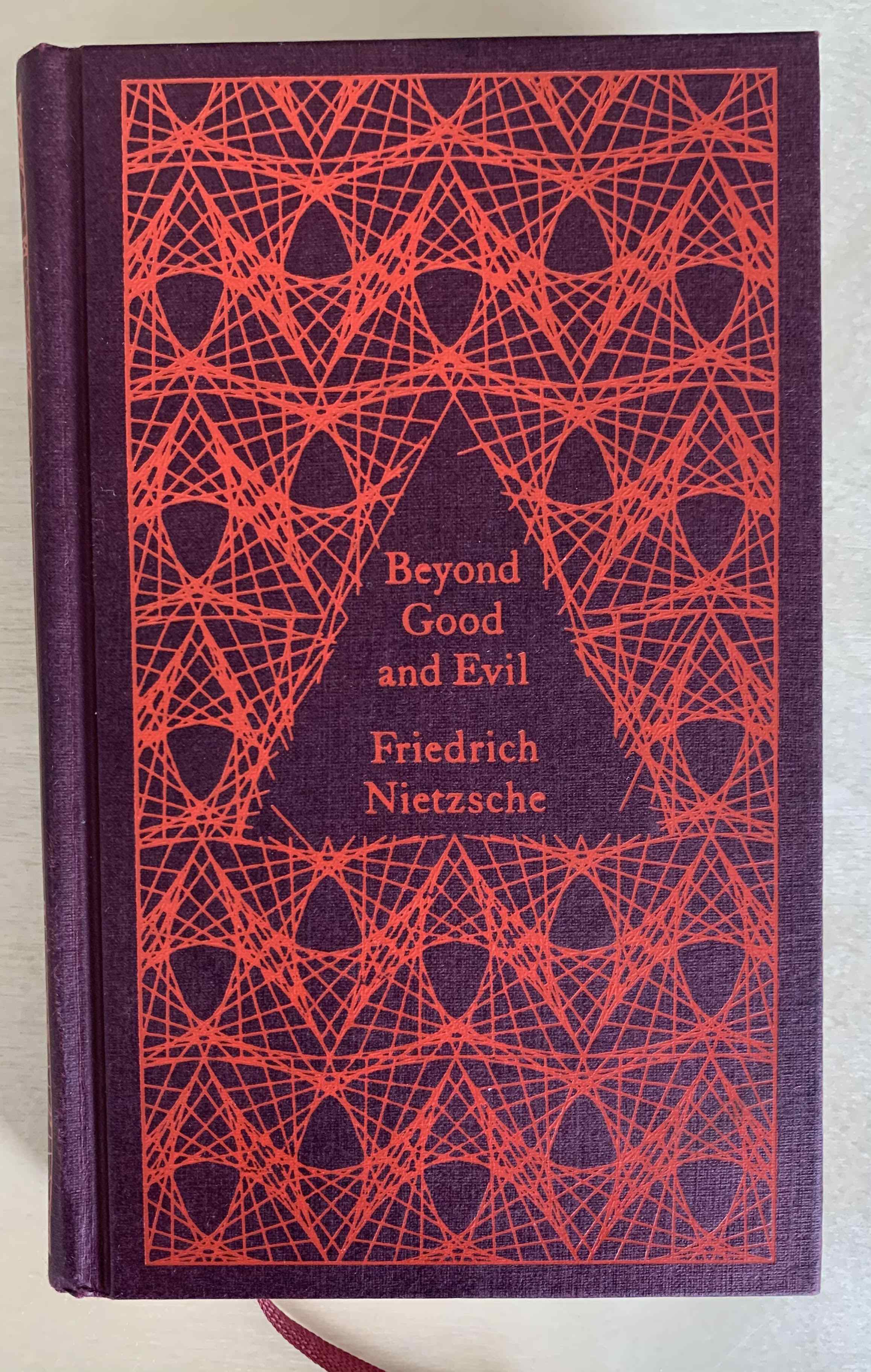
March 1st, 2021

"A nihilist is a man who judges that the real world ought not to be and that
the world as it ought to do not exist. According to this view, our existence
(action, suffering, willing, feeling) has no meaning: this 'in vain' is the
nihilists' pathos—an inconsistency on the part of the nihilists." - Friedrich
Nietzsche.
Nietzsche has a reputation for being a depressive nihilist. This does not seem to translate into what I've grasped from his ideas in this book. This general thinking comes about from the fact that he suffered from ill for most of his life (sick child, war-induced body damages, diseased adult life), and because of that, it seems tempting to create a connection between his painful life and his 'way too' critical philosophy, therefore labelling it pessimist and/or nihilist. However, this seems to be a much flawed statement, given that he criticised the nihilist point of view several times - as in the excerpt above - and he also, for many times, argued against Schopenhauer's pessimism.
Some critics will elaborate more about the wrong reputation attributed to Nietzsche, but one thing that stood out to my attention after reading some reviews, is the common statement that just like Machiavelli is misinterpreted, so is Nietzsche in the sense that their observations of the way nature and society come to be, are mistaken for recommendations of how nature and society should be.
This book - and translation - is very impenetrable. The text is written in a form of dramatic conversation. Nietzsche's ideas go far and then come back again after an exhaustive description and subsequent changes of context that don't necessary add much to the central topics, but on the contrary, often come as a bag of words.
Many people on the internet say that you've got to think like Nietzsche (I'd rather not, actually), without explaining what "thinking like Nietzsche" entitles. But enough of this; some people will be more prepared to read this book if they are keen to embrace all the different nuances hidden in the text, or if they simply, like Nietzsche, have high appreciation for the art of writing and will therefore enjoy the style of the text in addition to the idea transmitted in it.
Some claims in this book are very ridiculous to start with. The opening phrase in the book is:"Supposing truth to be a woman..." this sets the tone of what I meant by 'ridiculous'. It might catch you out of guard, but the book does not go on sexualising philosophy, but it does bring very misogynist ideas instead.
On another subject, the explanation of (or the lack thereof), master-slave morality did nothing to convince me of his ideas and takes on morality. The rants against democracy and socialism also did not make me buy the idea of 'herd mentality' altogether, even though I do agree with those respects in a marginal level and was somehow prepared to accept it if presented by a sound argument. On top of that, the criticism against Christianity isn't spectacularly novel (even at those times), and also one-sided. I do understand the feeling of 'revenge' against the establishment (Christendom) that many philosophers had back then (and still have today), for burning books with the most valuable knowledge after being categorised as heresies. However, I do not think that there were sound arguments against much of the Christendom regime in this book, and I do not get why Nietzsche is considers by much as an iconic atheist.
On the bright side, some of his maxims were interestingly valuable: "Who has not for the sake of his reputation sacrificed himself?" and the book also presented interesting critiques against Stoicism that I never thought or heard of, and other critiques around old philosophers being dogmatic were also interesting. It is worth nothing, though, that many arguments used to get to those critiques are obscure and boring, and overall life is too short for obscurantism.